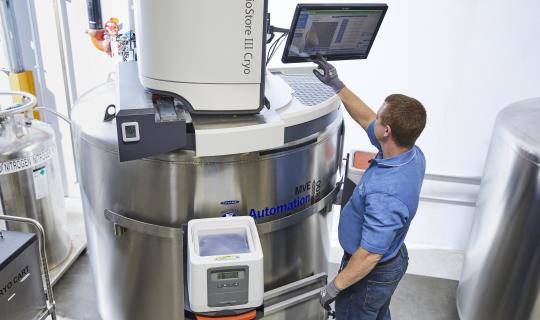Highlighting the importance of depots within clinical operations
By World Courier
World Courier’s Gurinder Shinmar tells ICT about the increasing complexity of clinical trials today, and highlights the importance of depots within clinical operations
(This article first appeared in ICT, February 2017 issue)
ICT: Tell us more about the challenges and risks associated with today’s clinical studies. In your opinion, what are the greatest hurdles in the sector, and how are they being addressed?
Gurinder Shinmar: Small molecule drugs have traditionally dominated the pharmaceutical market and have helped to dramatically improve quality of life by treating a broad range of diseases and illnesses. These drugs are typically manufactured through chemical synthesis, administered orally and have a low molecular weight (<900 daltons). In recent years, the global medicines market has seen a lot of change with the steady influx of more complex, protein-based drugs – or biologics. These are manufactured from large protein molecules and offer unique modes of action such as binding to specific cell receptors.
Unlike small molecule drugs – which are created by chemical synthesis – biologics are produced in biotechnological processes via genetically modified cells of micro-organisms such as bacteria and yeast, or in mammalian cell lines. This method is complex and, as a result, these products are expensive to develop and bring to market. In comparison, the manufacturing process of a small molecule drug is simpler, scalable and highly profitable.
Given that large molecule therapies require specific storage conditions to maintain their safety, purity, and effectiveness, logistics partners must be able to offer comprehensive, flexible supply chain strategies, including the greater risk protection that these therapies demand. Simultaneously, their approaches should be flexible and continue to offer a cost-effective solution to accommodate small molecule drug development, as these therapies will continue to play a significant role in the pharma industry.
Could you tell us a little about depots, and the role that they play in clinical operations?
The value proposition for off-shoring trials to emerging markets has been well-documented. However, many manufacturers do not have the experience or infrastructure needed to support the studies that are conducted in these regions. To overcome these hurdles, companies rely on local partners – including logistics firms – to support investigational drug storage in GMP-compliant clinical depots, as well as the secure movement of bulk investigational drugs into depots and to investigator sites. When conducting trials in these markets, it is crucial that sponsors work seamlessly with their partners to manage the entire supply chain. Invariably, sponsors will depend on the logistics providers in addition to CROs to understand the local regulations and requirements for conducting studies.
What area of clinical operations do you think will see the most significant innovations in the next 5-10 years?
The trends in the clinical trial marketplace – the drive to cut costs, more diverse products including specialist therapies, increasing emphasis on health outcomes, growing importance of emerging markets, heavier regulations, the rise of multinational logistics services, temperature control innovations and the direct-to-patient model – present both challenges and opportunities for the industry. Innovation in speciality packaging will continue to rise as manufacturers seek the most durable and cost-effective construction methods. With the increase in personalized therapies, there will be further developments in temperature monitoring, with the requirement for real time temperature data throughout the supply chain.
New technologies and automation in trials can facilitate faster turnaround times for getting drugs to market while ensuring high-quality data, complemented by cost efficiencies. One example of this is cloud computing, which will provide the information platform that manufacturers need to share data securely with global partners, thereby facilitating the analysis of inventory and giving the ability to respond to sudden changes in supply and demand. Although these innovations will aid the clinical studies process, manufacturers must continue to thoroughly plan their studies, improve end-to-end processes and outsource noncore activities. They also need to be ready to use partnerships, contract manufacturing and international logistics providers as necessary to increase flexibility, thus resulting in the optimisation of inventory and manufacturing capacities across multi-tiered global pharma operations.




